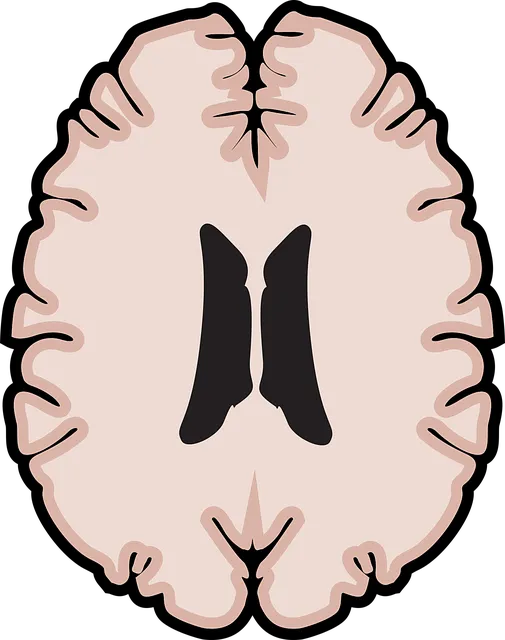In today's diverse healthcare landscape, Littleton Kaiser Permanente recognizes the importance of cultural competency in its behavioral health services. By integrating specialized training programs, such as Mental Health Education, they aim to improve patient outcomes and community relationships. This involves understanding cultural differences in trauma support, ensuring providers are equipped to address mental health concerns sensitively and holistically. Effective strategies include community outreach, interactive learning, and a Mental Wellness Podcast Series. The Littleton Kaiser Permanente behavioral health phone number is leveraged for case studies, providing trainees with practical insights into culturally sensitive care, crisis intervention, and risk assessment. This dynamic approach empowers mental health professionals to offer tailored, empathetic services to patients from varied backgrounds.
Healthcare provider cultural competency training is an essential component of modern medical practice, addressing the impact of biases and stereotypes on patient care. This article explores why such training is critical, delving into the profound effects of unconscious biases and offering practical strategies for enhancing cultural sensitivity. We highlight successful initiatives, including the role of resources like the Littleton Kaiser Permanente behavioral health phone number, in fostering inclusive healthcare environments that improve patient outcomes.
- Understanding Cultural Competency in Healthcare: A Necessity in Modern Practice
- The Impact of Bias and Stereotypes on Patient Care
- Effective Strategies for Training Healthcare Providers in Cultural Sensitivity
- Case Studies: Littleton Kaiser Permanente Behavioral Health Phone Number as a Resource for Learning and Improvement
Understanding Cultural Competency in Healthcare: A Necessity in Modern Practice

In today’s diverse healthcare landscape, cultural competency is no longer an optional skill but a necessity. It involves understanding and appreciating the cultural differences among patients and communities, enabling healthcare providers to deliver more personalized and effective care. This is especially crucial in organizations like Littleton Kaiser Permanente, where a wide range of patients from varied backgrounds seek behavioral health services. By integrating cultural competency training, such as those offered in Mental Health Education Programs Design, healthcare professionals can improve patient outcomes and foster better relationships within the community.
The need for this training is underscored by issues like trauma, which often intersects with cultural identities. Effective trauma support services require a nuanced approach that considers cultural responses to adversity. Mental Health Awareness initiatives, when incorporated into these training programs, can further equip healthcare providers to address mental health concerns sensitively and holistically. This ensures that every patient receives care tailored to their unique needs, experiences, and beliefs.
The Impact of Bias and Stereotypes on Patient Care

In the healthcare sector, cultural competency is a vital aspect of delivering quality patient care. However, biases and stereotypes can significantly impact the interactions between providers and patients from diverse backgrounds. These preconceived notions, often rooted in societal norms and personal experiences, can lead to misjudgments and hinder effective communication. For instance, a provider’s unconscious bias might influence their perception of a patient’s symptoms or compliance with treatment plans, especially when dealing with cultural practices that differ from their own.
At organizations like Littleton Kaiser Permanente, behavioral health phone numbers are often sought after by individuals in need of trauma support services and mental health awareness initiatives. By recognizing and addressing biases, healthcare providers can ensure that every patient receives personalized care. Promoting self-esteem improvement and understanding different cultural perspectives are key steps towards creating an inclusive environment. This not only enhances patient satisfaction but also encourages open dialogue, leading to better health outcomes for a diverse range of individuals.
Effective Strategies for Training Healthcare Providers in Cultural Sensitivity

Effective cultural competency training for healthcare providers involves a multi-faceted approach that goes beyond surface-level awareness. One powerful strategy is Community Outreach Program Implementation, which allows providers to interact directly with diverse communities, gaining firsthand insights into cultural norms, values, and challenges. This hands-on experience fosters deeper understanding and empathy.
Additionally, incorporating interactive learning methods like Mental Wellness Journaling Exercise Guidance can help professionals reflect on their own biases and experiences. Prompting self-awareness through journaling encourages critical thinking about how cultural differences might influence patient interactions. Furthermore, engaging in diverse perspectives through Mental Wellness Podcast Series Production offers a platform for exploring real-life scenarios, sharing best practices, and promoting open discussions around sensitive cultural topics within healthcare settings.
Case Studies: Littleton Kaiser Permanente Behavioral Health Phone Number as a Resource for Learning and Improvement

At Littleton Kaiser Permanente Behavioral Health, their phone number serves as a valuable resource for learning and improvement in healthcare provider cultural competency training. Through case studies centered around this phone line, mental health professionals can gain insights into effective crisis intervention strategies, stress management techniques, and nuanced approaches to risk assessment—all essential components of providing culturally sensitive care. By leveraging these real-world scenarios, trainees learn to navigate complex interactions with diverse patients, ensuring they’re equipped to deliver the highest quality of care.
This resource facilitates a dynamic learning environment where professionals can exchange knowledge, share best practices, and receive guidance on handling delicate situations. Ultimately, integrating the Littleton Kaiser Permanente behavioral health phone number into training curricula empowers mental health providers to offer more empathetic, effective, and culturally competent services to their patients.
Healthcare provider cultural competency training is no longer an option, but an imperative in modern practice. By addressing biases and stereotypes, implementing effective strategies, and learning from resources like the Littleton Kaiser Permanente behavioral health phone number, healthcare organizations can significantly improve patient care and foster more inclusive environments. This approach ensures that every patient receives respectful, culturally sensitive treatment, ultimately enhancing healthcare outcomes for diverse communities.

